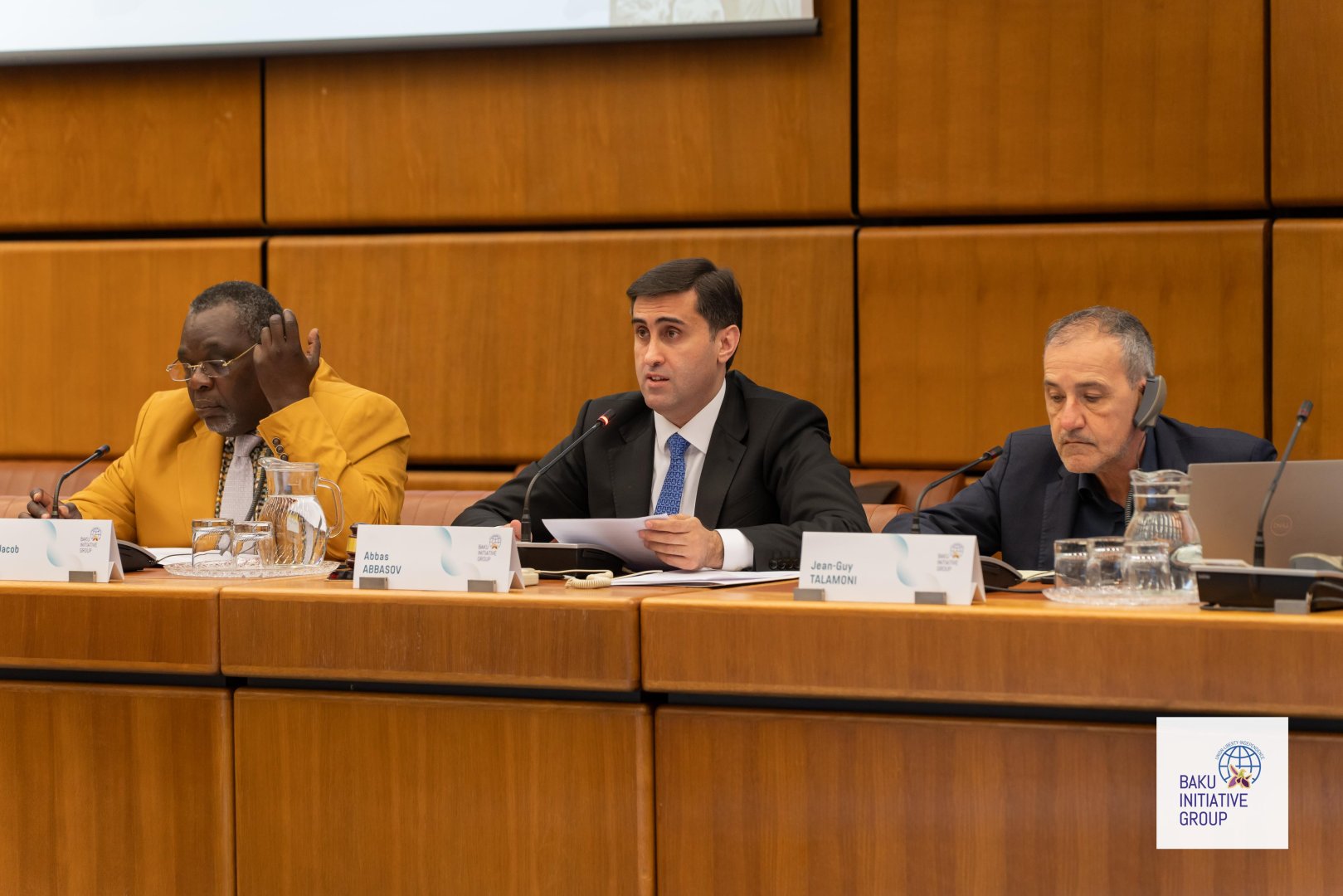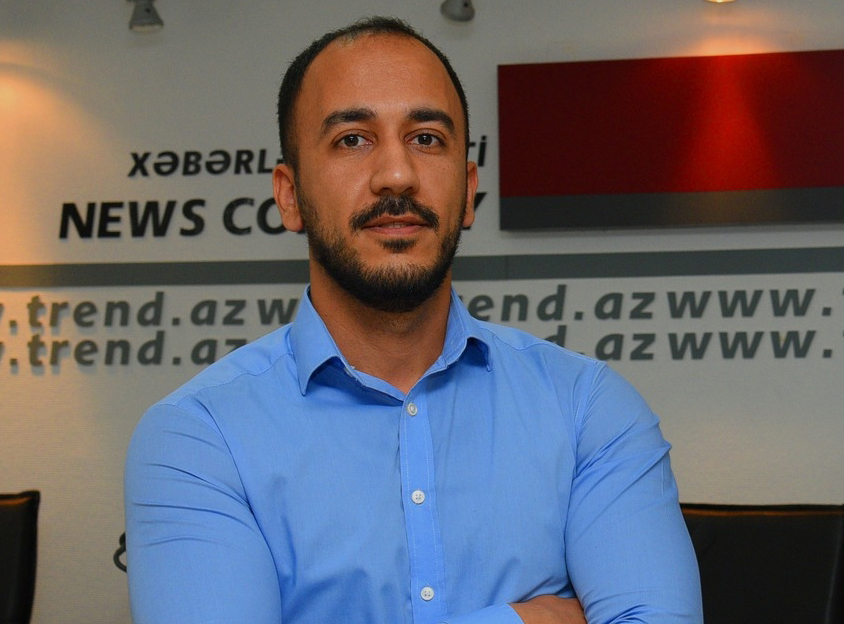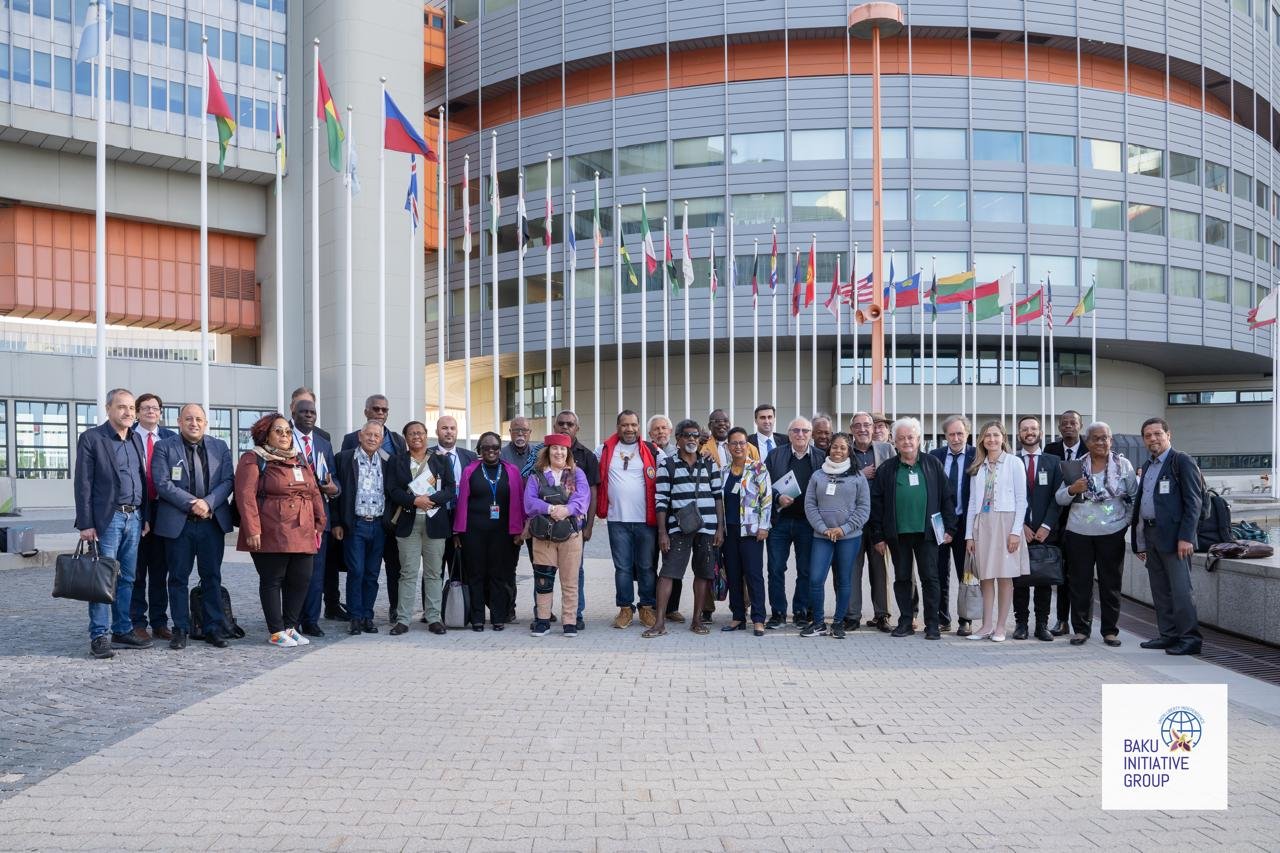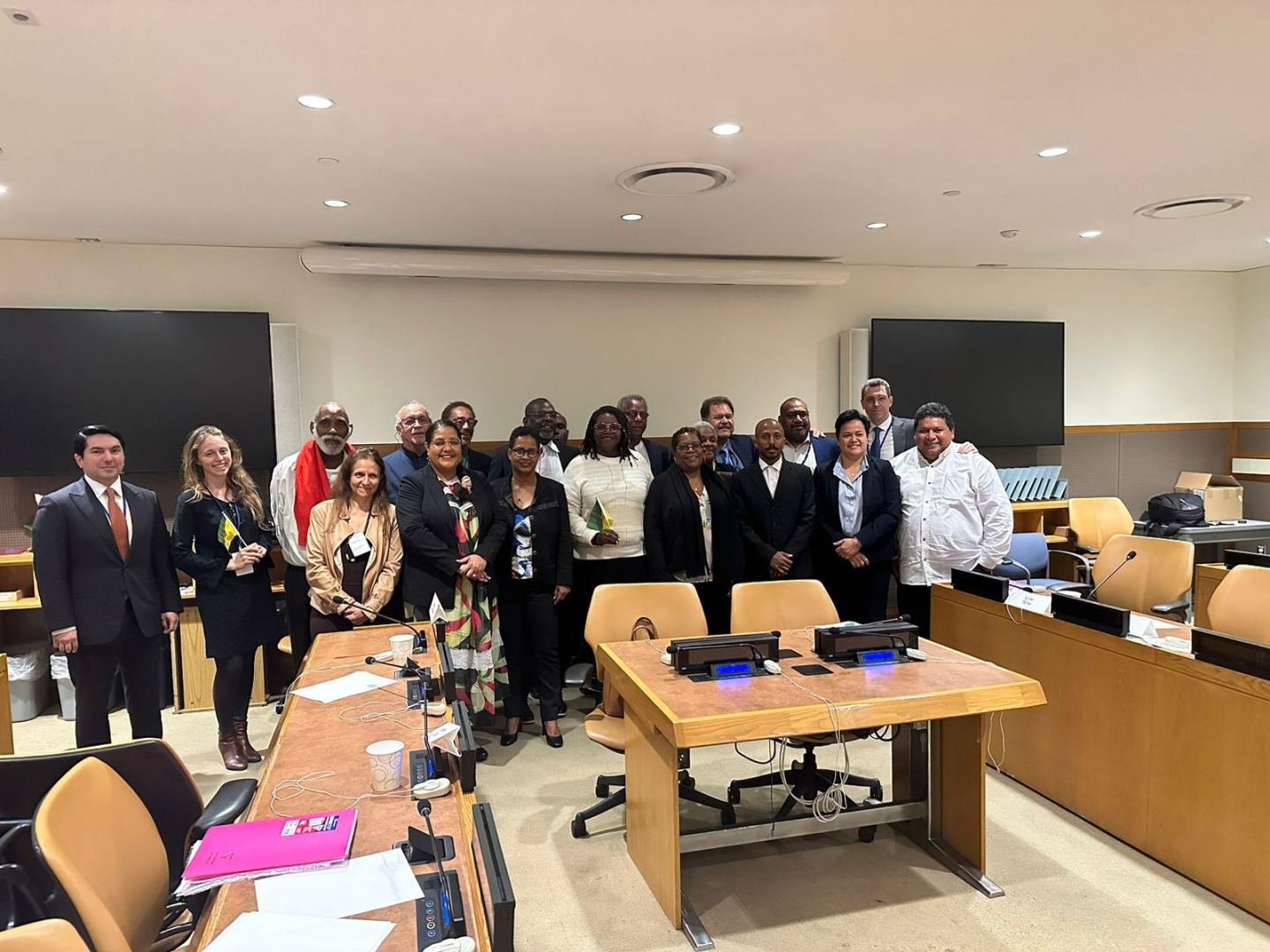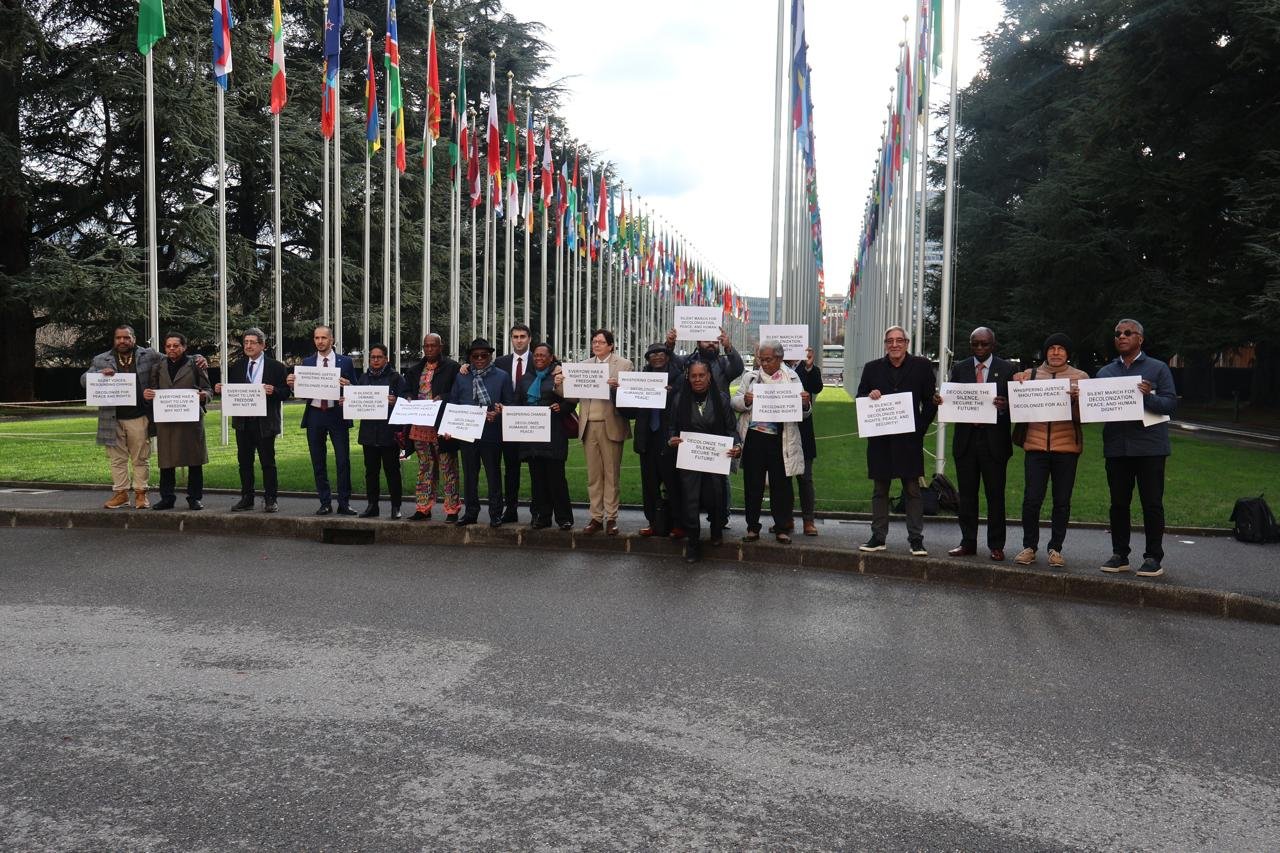BAKU, Azerbaijan, May 15. Organizations such as the Baku Initiative Group (BIG) have an active role in the fight against colonialism, Abbas Abbasov, Executive Director of the Baku Initiative Group, told Trend in an exclusive interview.
Let’s start from the recent escalations in New Caledonia. Proposed illegal constitutional amendments by the French government on election legislation caused the incidents and arrests in Noumea city and beyond. What are the key reasons of escalations in New Caledonia?
The Baku Initiative Group (BIG) has already expressed its deep concern regarding the recent arrests and the curfew imposed by French authorities in New Caledonia in its statement. One of the key reasons for these incidents is the illegal constitutional amendments which aim to enlarge the electorate at the expense of non-Kanaks in a purposeful manner. This has rightly caused people's dissatisfaction including the protests and demonstrations. During ongoing escalations, unfortunately, 82 Kanak civilians were arrested, and one person was killed. Recent proposed Constitutional amendments without considering the opinion of the Kanak people, violence, and arrest against civilians who participated in peaceful strikes and in protests have been accompanied by gross violations of various laws, including human rights, freedom of expression, in particular, international commitments of France. The French government has to understand that banning public gatherings and arresting pro-independence supporters are not the lasting solution.
We demand the French Government to take into account the decision of the Kanak people. BIG advocates for peaceful dialogue, respect for human rights, and a fair resolution to the underlying issues.
As well is known, since 1986, the United Nations Committee on Decolonization has included New Caledonia on the UN list of non-self-governing territories and this list aims to decolonize the 17 non-self-governing territories. The right to self-determination is fundamental, and we support those who seek a better and decent future for their own people, the BIG will continue to support Kanak peoples’ fair struggle for their independency.
What prompted the formation of the BIG and what are its primary goals?
As is well known, Azerbaijan was elected as a chair of the Non-Aligned Movement in 2019 and the country chaired the non-aligned movement for the last four years. The support to the struggling nations for independence under international law and in its fundamental principles constitutes a sacred duty of the Non-Aligned Movement which is the second largest international organization after the UN. Azerbaijan in its chairmanship has respected fundamental principles of the non-aligned movement, which means respect for nations’ sovereignty, their territorial integrity, security, recognition and respect for national movements that fought to gain their independence. In 2023, July the 6th, within the framework of coordination bureau of the ministerial meeting on the Non-Aligned Movement, the decision was made to establish Baku Initiative Group which one of the main activities is supporting colonized regions’ struggle against neo-colonialism and colonialism.
As I mentioned above, one of our missions is to support fight against neo-colonialism and colonialism under international norm and principles.
Can you give us an update on Baku Initiative Group's past accomplishments and its future plans?
The BIG successfully conducted nine international conferences for last eight months. The first conference themed “Decolonization: Peaceful Revolution” was held during the high week of the General Assembly at the main headquarters of the United Nations in New York. Then, BIG held effective international conferences covering various issues each time in the context of decolonization. BIG held several international conferences in 2023-2024 and some of these international conferences held at the UN headquarters (New York, Geneva and Vienna), where discussed political, economic and cultural consequences of the colonialism and violations of human rights in New-Caledonia, French Polynesia, Wallis and Futuna, Martinique, Guadeloupe, French Guiana and Corsica. where BIG is represented. Our organization involved foreign experts, academicians, representatives of international NGOs on decolonization and human rights, which was fairly effective and fruitful. The key purpose here by holding those events and inviting experts is to provide international community about real situation of affected regions that could not afford before the Baku Initiative Group. Although our organization has witnessed passive, more exactly stagnation and weak support in this direction in the recent years, there have been certain outcomes of our activities and will surely be results of this organization. Whether to what extent international law and international organizations are effective or ineffective, countries like Azerbaijan with exemplary chairmanship of such organizations including BIG claim struggle against colonialism. BIG has provided and still continue to update world community correct and accurate information about those regions that gives strong prediction to have more achievements in the near future on this line.
Why does colonialism still persist in the 21st century, and what are the latest trends in colonial practices that we often hear about?
When we go back to history, colonialism experienced a traditional way of direct control of territories and resource exploitation. However, due to global shifts in political ideologies, decolonization movements in colonized territories in the mid-20th century turned down the process. Unfortunately, some areas still suffer from colonialism and neocolonialism and several reasons can be listed for the persistence in the 21st century.
Economic exploitation such as extraction of resources by powerful nations or multinational corporations, unequal trade relationships, debt burdens still trigger poverty, and dependency and maintain a form of economic neo-colonialism.
Political impact by colonial powers over colonies through diplomatic relations, military presence, and even involvement in local conflicts undermines those nations’ sovereignty and self-determination.
Cultural hegemony as a continuation of colonial cultural imperialism still stands among the top influences over colonies, existing in cultural norms, values, social hierarchy, languages, and institutions in many parts of the world.
As we constantly hear, indigenous people in colonies are facing injustices and inequalities caused by colonialism. For example, colonies frequently complain about unequal access to resources, land dispossession, and racial discrimination that shape social and economic structures.
Powerful nations hide geopolitical interests under the name of promoting democracy, human rights, or security interests that may grab the attention of ordinary people. In addition, history has witnessed the involvement of military interventions, regime changes, or support for proxy governments over colonies several times.
At the same time, how can countries involved in colonial activities project a democratic image for themselves?
First of all, we are seeing from experiences that French government intentionally emphasize rhetoric of freedom, equality and human rights to justify their actions and present themselves as pioneers of democracy. Indeed, “French pioneers of democracy” violates human rights in colonized regions, and the BIG has effectively delivered the reality in above-mentioned regions through international events to the global community.
Another key aspect here is, the implementation of institutional reforms in those regions, and organizing controlled elections by colonial authorities in order to form puppet governments in colonized territories with the image of democratic governance aiming at never-ending dominance of colonial powers or their preferred political elites. As I mentioned in the first question, nowadays we are observing that the French Senate and National Assembly proposed illegal constitutional amendments in New Caledonia, and the French government by way of implementing such illegal constitutional amendments strives to sustain their neocolonialism policy in colonized regions.
How are Azerbaijan's calls for anti-colonialism being received by international organizations, Western institutions, and major powers? And why aren't these calls receiving efficient responses?
This depends on several factors, largely geopolitical interests and historical context.
Azerbaijan's calls for anti-colonialism may receive support from certain international organizations, particularly those that advocate for decolonization, sovereignty, and self-determination, namely the Non-Aligned Movement (NAM), the Organization of Islamic Cooperation (OIC), or the United Nations (UN) may express solidarity with Azerbaijan's position and condemn colonial practices.
When it comes to responses from Western institutions, several Western governments and institutions may express support for Azerbaijan's anti-colonial policy or position that aligns with principles of democracy, human rights, and territorial integrity.
Moreover, a fair assessment of the struggle against colonialism by relevant international organizations and the international community is important, unfortunately, they don’t do yet, but there is hope for the future on this path. Countries such as Azerbaijan, international organizations should actively be involved in the process of decolonization. Organizations such as Baku Initiative Group have an active role in the fight against colonialism with growing support to these regions. Our opinion is, if they work in this direction there will surely be positive results.

